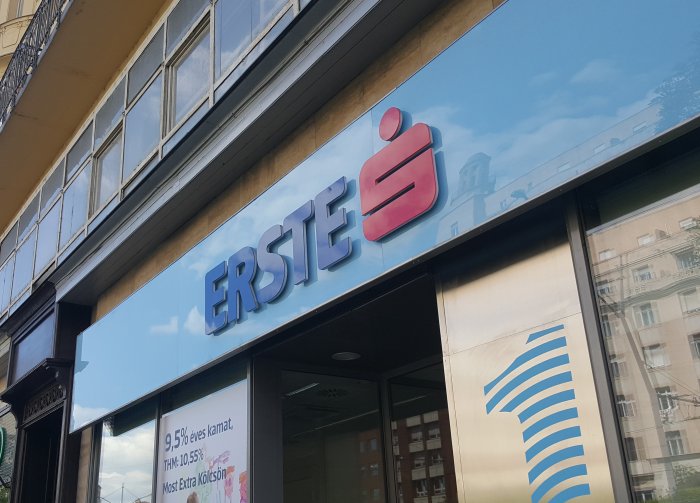Too Much too Soon? Vast Changes to Allocation of Grid Connection Capacities

László Kenyeres, Partner, Wolf Theiss Budapest (left); Ádám Lukonits, Associate, Wolf Theiss Budapest
This spring, new, competitive capacity allocation principles were introduced in the Hungarian Electricity Act, followed by more detailed provisions in September adopted by the Hungarian transmission system operator, MAVIR. The new rules bring a conceptual change and fundamentally affect power plant developments already underway.
Due to an amendment of the Hungarian Electricity Act, new capacity allocation principles were applicable as of April 1, 2021, for power generation facilities. Under the amendment, on the one hand, authorized network operators (i.e., MAVIR and the distribution service operators or DSOs) are obliged to make detailed information about free capacities public, broken down by high-voltage and high/medium-voltage transformer stations and the technical and foreseeable economic conditions of connection, every six months. This is to facilitate the power producers’ access to the public grid, awarded through competitive tenders.
On the other hand, grid connection applicants must pay financial guarantees for taking part in the capacity allocation, which is in response to the increasing difficulties of integrating solar power plants into the Hungarian electricity system.
The detailed rules are expected to be published in the Implementation Decree of the Hungarian Electricity Act and the technical codes of MAVIR and the DSOs. These rules must ensure equal treatment and transparency of conditions for access and the predictability of investments for generation from renewables while maintaining competitive neutrality, as per the Hungarian Electricity Act.
MAVIR decided to adopt its own rules in two phases: a “transitional” period runs until the end of this year (Phase I), with the final setup expected to enter into force next year (Phase II). The transitional rules were published on September 2, bringing important changes to the ongoing grid connection procedures. Similar regulations are anticipated to be adopted by the DSOs in the coming months.
The transitional MAVIR rules affect those grid connection applicants that were in a grid connection procedure as of July 1, 2021, which means the grid connection agreement had not been concluded by that date, and
(i) a grid connection plan or a feasibility study had been submitted to MAVIR by August 3, 2021; or
(ii) MAVIR issued its offer for the technical and financial terms of grid connection (the so-called “MGT”) by July 31, 2021, provided that the project took part with such MGT in the last METÁR tender launched in April this year.
Any other grid connection applicant not fulfilling either of the above conditions will have to start its grid connection application over again and go through a competitive tender, the first round of which is expected to be held later this year.
The affected applicants have to submit a binding capacity booking declaration to MAVIR by October 8, pay MAVIR a financial guarantee of HUF 900,000/MVA by the same day, and pay another cash deposit of HUF 3,600,000/MVA by January 31, 2022. The cash deposits will be credited to the grid connection fee payable under the grid connection agreement.
Failure to comply with any of the above will lead to the termination of the grid connection procedure, and failure to comply with the second payment will also result in the loss of the first one on the ground of liquidated damages. Slightly different rules are applicable for those planning to take part in a METÁR tender later this year. Most importantly, they can make their capacity booking declaration conditional upon winning the tender.
These provisions have a significant impact on developments. Plenty of money has already been invested in many projects, and the above restrictions will mean that, in the short term, business models will have to be significantly modified.
Many questions are open, leading to visible market exposure. For example, it is unclear whether the financial guarantees are recoverable in the event of a failure for reasons beyond the developer’s control.
The new system and the need for high upfront funding may discourage investors. Therefore, ongoing financial and legal support is perhaps more necessary than ever, especially as the DSO rules and final implementation provisions are unknown.
This article was first published in the Budapest Business Journal print issue of October 8, 2021.
SUPPORT THE BUDAPEST BUSINESS JOURNAL
Producing journalism that is worthy of the name is a costly business. For 27 years, the publishers, editors and reporters of the Budapest Business Journal have striven to bring you business news that works, information that you can trust, that is factual, accurate and presented without fear or favor.
Newspaper organizations across the globe have struggled to find a business model that allows them to continue to excel, without compromising their ability to perform. Most recently, some have experimented with the idea of involving their most important stakeholders, their readers.
We would like to offer that same opportunity to our readers. We would like to invite you to help us deliver the quality business journalism you require. Hit our Support the BBJ button and you can choose the how much and how often you send us your contributions.







KO%CC%88NIGSHOFER%20MICHAEL_3zu4_Web.jpg)

KOENIGSHOFER%20MICHAEL_3zu4_PRINT-CUT-SMALLER.jpg)

